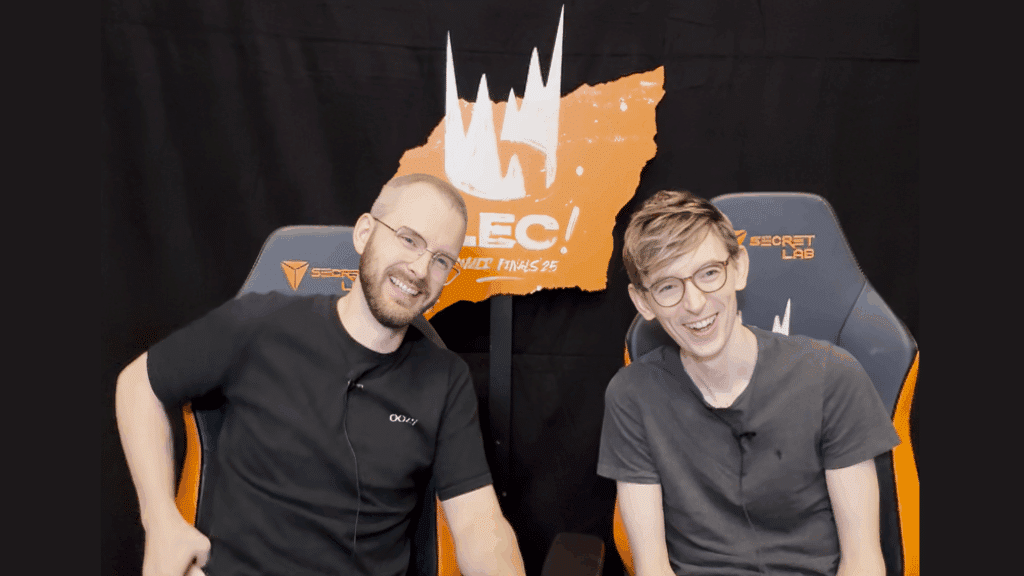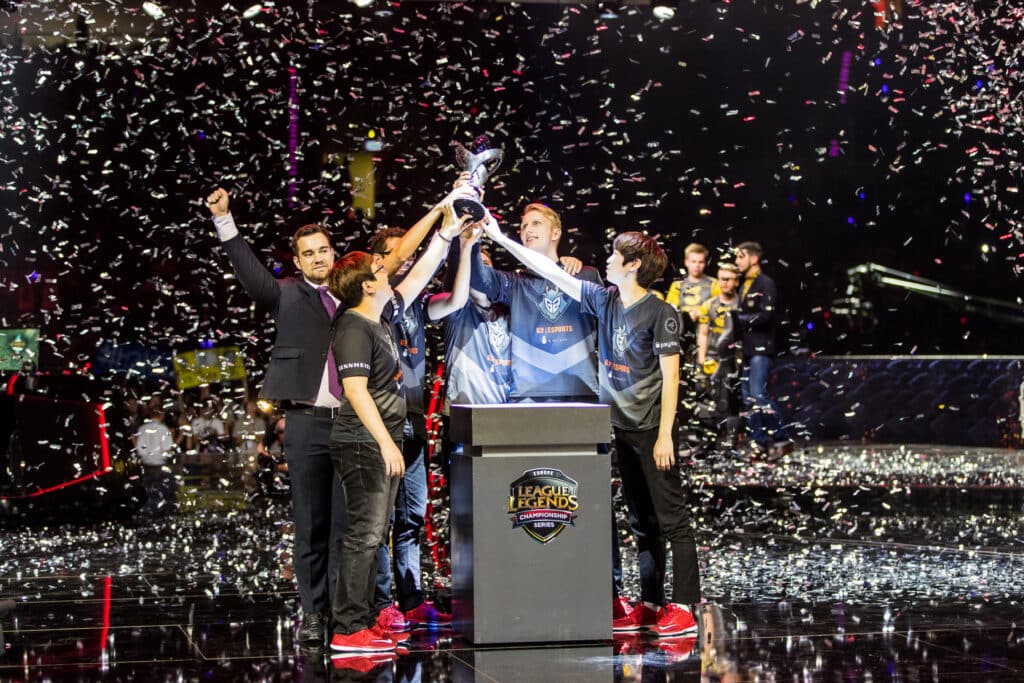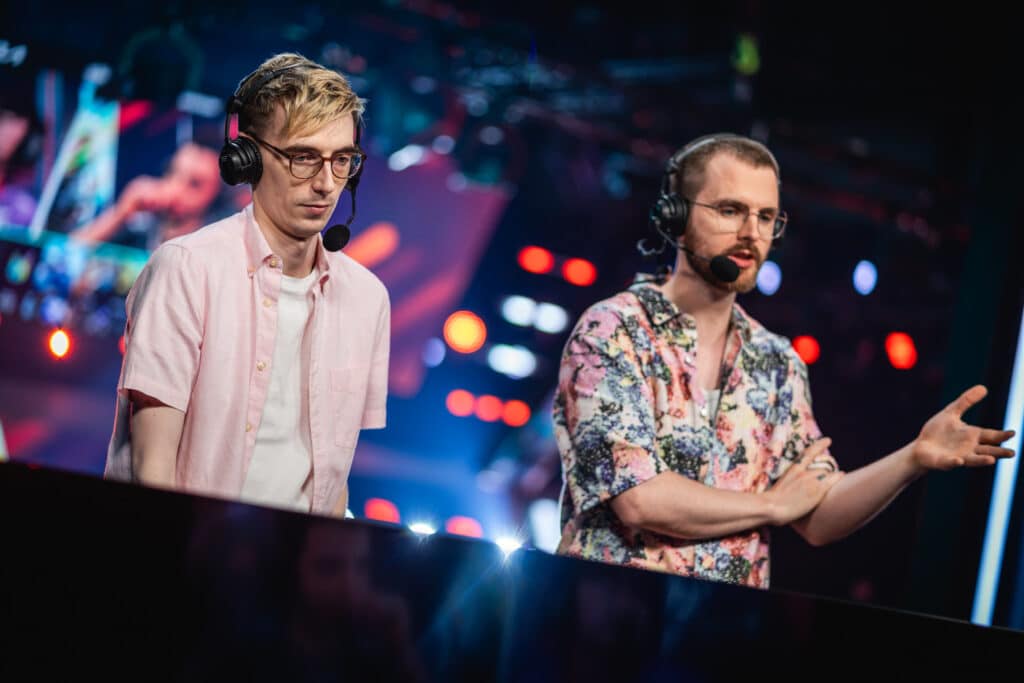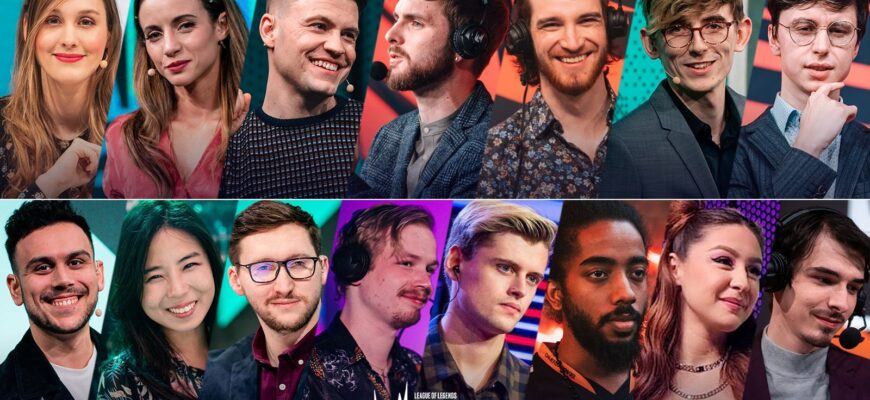For millions, the League of Legends EMEA Championship (LEC) is more than just a game; it`s a spectacle, a drama unfolding in real-time. Yet, the vibrant tapestry of heroic plays, crushing defeats, and improbable comebacks wouldn`t resonate quite as deeply without the voices that guide us through every moment. For nearly a decade, Andrew `Vedius` Day and Daniel Drakos have been two such architects of emotion, transforming fleeting pixels into unforgettable stories for the LEC broadcast. Their philosophy? It`s strikingly simple, yet profoundly complex: “The show isn`t about you.”

The Evolving Canvas: Storytelling in a Dynamic Arena
The world of professional League of Legends is a kaleidoscope of constant change. Rosters shift, metas evolve, and new legends emerge, demanding that casters like Drakos and Vedius adapt their narrative craft on the fly. When they joined the broadcast in 2016, the European scene was at a pivotal juncture. The long-reigning Fnatic was ceding its throne, and a power vacuum opened, soon to be filled by the formidable G2 Esports.
This rise of G2, while establishing a new era of dominance, presented an interesting creative challenge for the casters. As Vedius mused, with a hint of what some might call `narrative frustration,` the league often felt “very centred around G2.” While dominance brings undeniable recognition and a clear benchmark for success, it can, perhaps ironically, limit the breadth of compelling storylines. When every tale eventually culminates in “defeating G2,” the narrative possibilities, though potent, become somewhat constrained. Drakos echoed this sentiment, admitting it “got to the point where it`s annoying” to constantly frame every team`s journey against the reigning champion.
However, even with G2 continuing its formidable winning streak (securing its 17th domestic title shortly after our conversation in October 2025), both casters express cautious optimism. The 2025 season, they believe, has hinted at a renewed parity at the top, reminiscent of the more balanced competitive landscapes of earlier years. This broadening of the competitive field promises a richer, more diverse tapestry of stories for them to weave.

Unmasking the Caster: Beyond Bias and into Collaboration
The life of an esports caster, like any public-facing role, comes with its share of misconceptions. Perhaps the most persistent myth is that of overt bias. Drakos firmly dismisses this, suggesting that any perceived favoritism is rarely more than a “small amount of unconscious bias.” Vedius, with candid self-awareness, admits to a natural “EU bias” in international competitions – a desire for his home region to succeed – but stresses that professionalism and objectivity always take precedence. When the camera is on, the goal is accuracy and respect for every competitor, regardless of personal rooting interests. After all, as Drakos playfully noted, even when a European team is “set up to get blasted” by an international titan, the broadcast must maintain an even keel.
Another common oversight is the perceived isolation of casters within their own league. In reality, the international esports broadcasting community thrives on deep collaboration. Vedius highlights the deliberate effort to communicate with fellow casters from other regions, sharing insights and understanding crucial storylines. The ultimate goal, he emphasizes, is to ensure “the pros are best represented,” placing the athletes at the absolute forefront of the narrative.
The Dual Mandate: Entertainer or Educator?
At the heart of a caster`s philosophy lies a fundamental question: is their primary role to entertain or to educate? On a live broadcast, it`s a tightrope walk, balancing emotional resonance with technical clarity.
For Drakos, the play-by-play voice, entertainment reigns supreme, but with a critical caveat. “Your job, first and foremost, is to be an entertainer,” he states, “but the show isn’t about you.” The game itself, with its inherent drama and the compelling stories of its players, provides all the necessary material. To fail to be entertaining when chronicling the saga of a legend like Faker, he suggests, is a missed opportunity.
Vedius, as the color caster, approaches this from a slightly different angle. His responsibility, he asserts, is “to inform the viewer of what’s happening.” He draws a subtle yet important distinction between educating and teaching; it`s not about dissecting every micro-mechanic but ensuring the audience grasps the context and significance of each pivotal moment.
Despite these nuanced differences, a consensus emerges: the most effective casting is a blend of showmanship, expertise, and empathy. League of Legends, unlike some more immediately digestible esports like first-person shooters, demands context. Casters must be adept at guiding viewers through its intricate layers, making every intense team fight or strategic objective feel meaningful, even for those new to the rift.

The Core Principle: “The Show Isn`t About You”
Ultimately, both Vedius and Drakos converge on a singular, powerful principle: the focus must always remain on the game, its players, and the unfolding competition. Their work, though performed under dazzling lights and before massive audiences, is an act of service to the sport. It`s about amplifying the moments that truly matter—be it a veteran`s redemption arc, an underdog`s unexpected triumph, or the sheer adrenaline of a grand final.
After nearly a decade defining the soundscape of the LEC, Drakos and Vedius continue to evolve alongside the league itself. Their philosophical approach to casting, rooted in authenticity, player respect, and an unwavering commitment to the narrative, ensures that the stories of League of Legends esports will continue to captivate audiences for years to come. They are, in essence, the unsung chroniclers of digital glory, reminding us that even in the most technical of contests, the human story always takes center stage.








